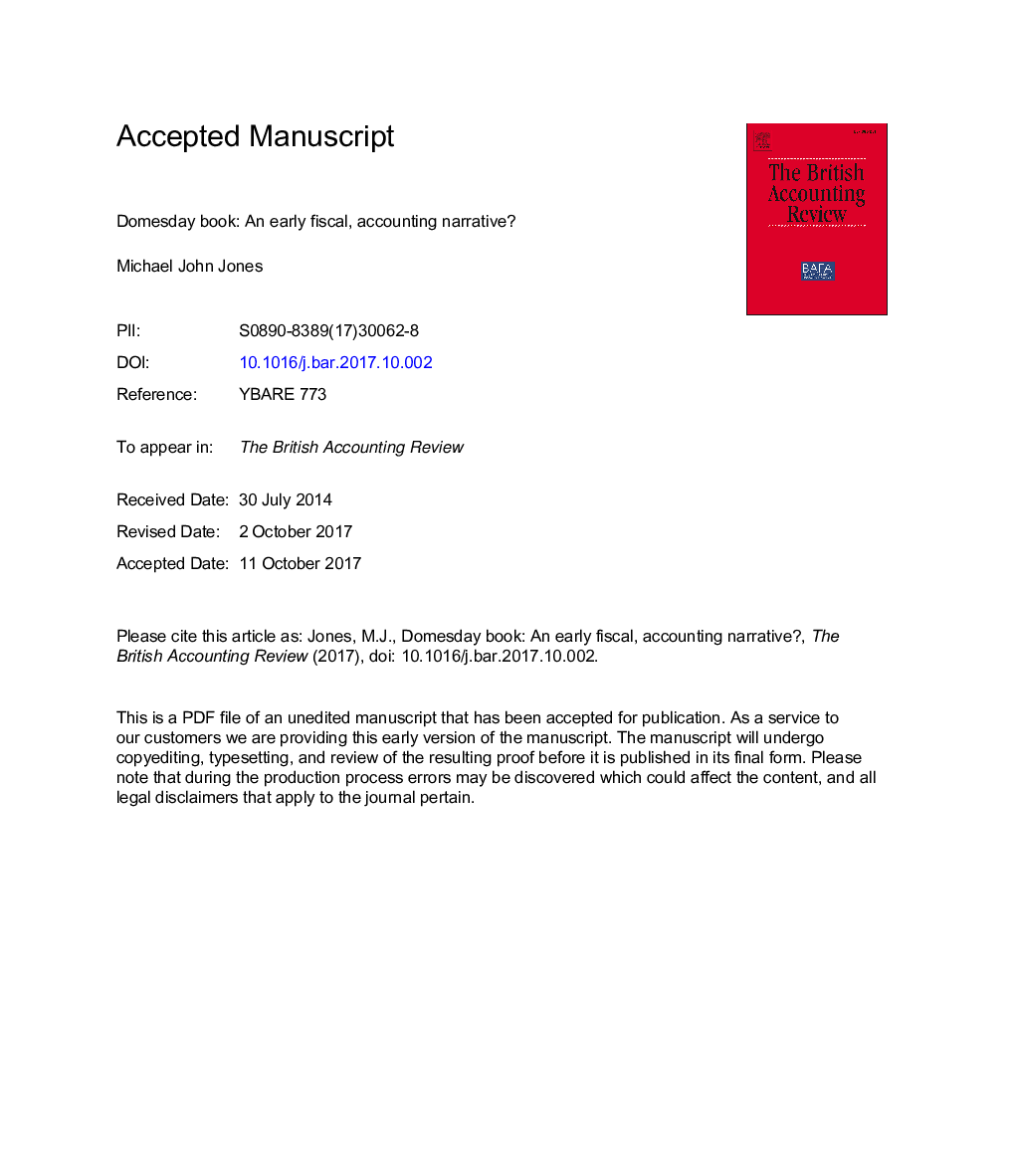| Article ID | Journal | Published Year | Pages | File Type |
|---|---|---|---|---|
| 7414540 | The British Accounting Review | 2018 | 39 Pages |
Abstract
Domesday Book is one of the most important documents in English history. It has been much studied by social, economic and institutional historians. At its heart it is an accounting document. Domesday Book of 1086 is regarded as a landmark in accounting history, primarily because it heralded a written system of government accounting in England. It introduced an administrative framework from which eventually the English Exchequer and charge and discharge accounting evolved. Domesday Book was compiled during one of the most significant periods in English History just after the Conquest of England by William I. It reflected new King's need to consolidate his power. The purpose of this article is to examine Domesday Book as an historical accounting record, concentrating in particular, on one shire: Herefordshire. It shows how Domesday Book provided the king with comprehensive information about individual landowning and taxable capacity. In addition, Domesday Book is contextualised within the social and economic conditions of the time. Domesday Book is shown to be a device for royal consolidation, a political expression of royal power and a vehicle to raise taxes. It also provided the administrative and territorial basis upon which the Exchequer's embryonic disciplinary power could be developed.
Related Topics
Social Sciences and Humanities
Business, Management and Accounting
Accounting
Authors
Michael John Jones,
